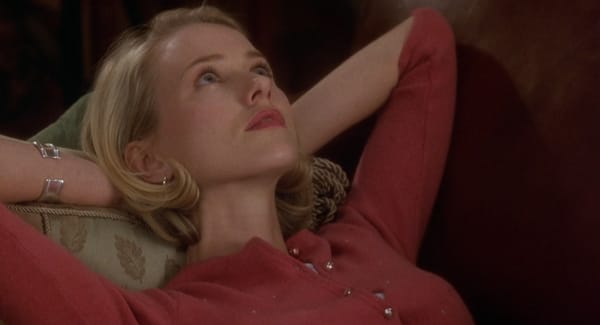What Makes a Perfect Pop Song?
Some thoughts on recorded serendipity.


Is it the words or the music? The arranging of the notes or the arrangement of the instruments? Can a perfect song be objectively determined, or does it depend on the listener’s emotional response? In other words, does a perfect song belong to everybody – or to no one but you? And which ones are those?
I have a playlist – you knew this was coming – that I’ve added to and subtracted from over the years, of songs that have the mystique of perfect creation about them. (You can listen to it on Spotify or with better sound on Tidal.) They’re not necessarily my favorite songs – that’s a different playlist, although there’s a lot of overlap. Rather, they’re pieces of recorded music in which the various elements snap into place with a balance and a rightness that’s less about art and more about craft. In fact, I’d argue that they represent the pinnacle of craftsmanship in modern music-making while also recognizing the importance of chance, the chaos principle. Like Al Kooper visiting a Bob Dylan recording session on June 16, 1965, sitting down uninvited at the organ (he was a guitar player), and giving “Like a Rolling Stone” its epic signature sound. That song isn’t on my playlist – it could and arguably should be – but I went with “One of Us Must Know (Sooner or Later)” from Dylan’s Blonde on Blonde. For me, that song’s build is even more relentless, as Paul Griffin’s crashing piano keeps pushing the whole thing out on the ledge while Kooper’s implacable organ chords keep calmly pulling it back.
A perfect pop song has no wasted notes – except for those cases where the wasted notes (or the wasted musicians) somehow add to the sense of cohesion, of rightness. Harry Nilsson’s “Jump Into the Fire” is hardly a model of concision, and that’s what makes it great – it’s the sound of a meticulous pop craftsman finally delivering a balls-out rocker that still has shape and structure beneath the madness. And even there we have chance to thank, as the single version of the song (below), clocking in at 3:33, is exactly long enough, while the 7:00 minute album cut goes off the rails with a drum solo and never recovers.
Sometimes the perfection is in the lyrics, with the music only serving as appropriate frame. “Love is Like a Bottle of Gin” by The Magnetic Fields could hardly be expected to improve upon that title, and yet it does, with Stephen Merritt’s Audenesque croak laying out one perfect aperçu after another:
You can find it on the Bowery
Or you can find it at Elaine's
It makes your words more flowery
It makes the sun shine, makes it rain
You just get out what they put in
And they never put in enough
Love is like a bottle of gin
But a bottle of gin is not like love
The instrumentation is spare to the point of comedy: A duet for cello and electric bass, both rumbling beneath Merritt’s basso profundo. Just the way he holds the first syllable of “never” in the line “And they ne-ver put in enough” – only slightly, only enough to feel the exhaustion and the love – is what puts it in the pantheon for me. It’s a song sung from the gutter while looking up to heaven.
A perfect song can tell a perfect story, like John Prine’s “Donald and Lydia,” with its outcast sweethearts making love – “LOVE” – everywhere except in reality before waltzing into the clouds on a bed of gorgeous pedal steel guitar.
A perfect song can locate a riff, some magical clockwork of chords, and ride it for all its worth: Ladies and gentlemen, The Penguin Café Orchestra’s “Perpetuum Mobile,” sliced and diced for years as NPR intro music but almost painfully beautiful when encountered in full.
A perfect song can fall short of perfection and still be perfect, like Van Morrison’s “Into the Mystic,” foghorns and all, whose only crime is that it’s not long enough.
Because I’m old and of my generation, the playlist reflects that. It’s definitely too white, and there aren’t enough women, although the ones that are there are of recent vintage: Waxahatchee, a.k.a. Katie Crutchfield, whose “Lilacs” is a lovely tune, brimming with the joy of the newly sober addict and raised up by its closing vocal curlicues – the melisma of the saved. Or “Swamp and Bay” by the duo Girlpool: a simple, overwhelming pattern of power chords to lead the listener out of Trump-era despair into grace.
In the end, the playlist, and its value, lies in acknowledging those tracks that simply cannot be improved upon, whose parts contribute to a whole that’s so close to the Platonic ideal of “a song” as to dispel any and all arguments. Brian Wilson has written two of them (at least): “In My Room” and “God Only Knows.” Ray Davies of The Kinks has written one (at least): “Waterloo Sunset.” Lowell George’s “Long Distance Love” is a number that pleads its case without an ounce of extraneous motion or emotion. The beloved Fountains of Wayne tried and tried and with the non-album single “I Know You Well” achieved the grail: Rock-solid song structure, witty wordplay, an exquisite instrumental break, and emotion flooding all the way through.
Of course, it may be that the most perfect songs are the ones that aren’t trying at all. Just another day in the studio, the band doing their best. The Shirelles singing “Will You Love Me Tomorrow” while Phil Spector cracks the whip or The Spinners singing “I’ll Be Around” as Thom Bell fiddles with the levels. A lonely voice in a studio, like Nick Drake with “Northern Sky,” or a singer singing about a lonely voice in a studio, like the Mountain Goats’ eulogy for Frankie Lymon’s last night on Earth in “Harlem Roulette.”
At the end of the day, there’s only one purely perfect pop song for me, and that’s “Ba Ba Boom,” a 1967 rocksteady track by The Jamaicans that’s been name-checked by Warren Zevon, among others, and whose lyrics expound upon the indisputable fact that when it’s ba-ba-boom time, you had best get off your ass and dance. The beat is loping and assured; a fast-picked guitar line tickles the verses forward while the off-beat chop of the rhythm guitar holds everything else in place. Noris Weir’s lead vocal is unruffled, Olympian, and the backing harmonies support him the way only old friends do. Then the horns come in at the end, and they’re just pitchy enough for the chords to feel warm and handmade, the kind of perfection that comes from embracing imperfection in all its beautiful shabbiness. The song’s self-contained, about nothing more than itself — it just is. In Zen Buddhism, there’s the parable of the cook who achieved enlightenment yet went on being a cook, and that’s kind of what The Jamaicans achieve here. It’s a three-minute tune recorded for Duke Reid’s Treasure Isle label sometime in early 1967, and it’s also a song that has never not existed. Wherever you are, it’s Ba Ba Boom time.
What’s your perfect song? Do tell.
If you enjoyed this edition of Ty Burr’s Watch List, please feel free to share it with friends.
If you’re not a paying subscriber and would like to sign up for additional postings and to join the discussions, here’s how:
If you’re already a paying subscriber, I thank you for your generous support.





